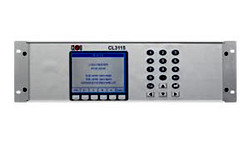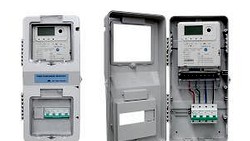The power grid is an important infrastructure that delivers electricity to homes, businesses, and industries. However, power outages can have severe consequences, leading to disruptions in essential services, economic losses, and safety hazards. Improved reliability of the power grid is essential to address these challenges.
Infrastructure Modernization
The backbone of a reliable power grid lies in its infrastructure. That's why it's crucial to prioritize infrastructure modernization.
Upgrade Aging Assets
- Replace outdated and aging components, such as transformers, circuit breakers, and transmission lines, with modern and efficient equipment.
- Utilize advanced technologies, like sensors and remote monitoring systems, to detect and address potential issues before they cause outages.
- Implement condition-based maintenance strategies to proactively identify and repair aging components.
- Invest in grid hardening measures to protect critical infrastructure from extreme weather events and other hazards.
Employ Smart Grid Technologies
- Install smart meters and advanced metering infrastructure (AMI) to enable real-time monitoring of electricity consumption and distribution.
- Utilize smart grid technologies to optimize grid operations, reduce energy losses, and enhance the efficiency of power delivery.
- Implement demand response programs that allow utilities to adjust electricity demand in response to grid conditions.
- Develop microgrids and distributed generation systems to improve grid resilience and reliability.

Distributed Energy Resources (DERs) Integration
Distributed energy resources are revolutionizing the energy landscape, empowering communities to take control of their energy future.
Promote Renewable Energy Sources
- Encourage the adoption of renewable energy sources, such as solar and wind power, through policies and incentives.
- Develop grid integration standards and protocols to facilitate the seamless connection of DERs to the power grid.
- Invest in research and development to improve the efficiency and affordability of renewable energy technologies.
Microgrids and Distributed Generation
- Establish microgrids in critical facilities, such as hospitals and emergency response centers, to provide backup power during outages.
- Promote distributed generation, where electricity is produced at or near the point of consumption, to reduce reliance on centralized power plants.
- Develop policies and regulations that support the integration of DERs into the power grid and ensure fair compensation for distributed energy producers.
Cybersecurity and Physical Security
In today's interconnected world, the convergence of cybersecurity and physical security is paramount to safeguarding critical infrastructure from evolving threats.
Enhance Cybersecurity Measures
- Implement robust cybersecurity measures, such as firewalls, intrusion detection systems, and multi-factor authentication, to protect the power grid from cyber-attacks.
- Regularly update software and systems to address vulnerabilities and mitigate potential threats.
- Conduct cybersecurity audits and assessments to identify and address potential vulnerabilities.
- Develop and implement cybersecurity incident response plans to quickly and effectively respond to cyber-attacks.
Strengthen Physical Security
- Improve physical security measures at power plants, substations, and transmission lines to prevent unauthorized access and sabotage.
- Install security cameras, motion detectors, and access control systems to deter and detect unauthorized activities.
- Conduct regular security audits and assessments to identify and address potential vulnerabilities.
- Collaborate with law enforcement and security agencies to enhance the physical security of the power grid.
Grid Planning and Forecasting
Grid planning and forecasting play a vital role in ensuring the efficient and reliable operation of the power grid, enabling utilities to anticipate and meet the ever-changing electricity demands of the future.
Grid Planning and Forecasting
- Develop comprehensive long-term plans for grid expansion and modernization, considering future energy demand and technological advancements.
- Integrate renewable energy sources and DERs into grid planning to ensure a sustainable and reliable power system.
- Conduct regular grid studies and analyses to assess the impact of new technologies and changing energy demand patterns on grid reliability.
Demand Forecasting and Load Management
- Utilize advanced forecasting techniques to predict electricity demand and adjust grid operations accordingly.
- Implement demand-side management programs to encourage consumers to shift their electricity usage to off-peak hours, reducing peak demand and improving grid stability.
- Develop time-of-use pricing mechanisms to incentivize consumers to reduce electricity consumption during peak demand periods.
Collaboration and Communication
Collaboration and effective communication are the cornerstones of a successful and resilient energy sector, fostering innovation, knowledge sharing, and collective problem-solving for a sustainable future.
Stakeholder Engagement
- Foster collaboration among utilities, government agencies, industry experts, and consumer groups to address grid reliability challenges collectively.
- Establish regular communication channels to share information, coordinate efforts, and address emerging issues.
- Develop joint planning and decision-making processes to ensure that all stakeholders have a voice in grid modernization efforts.
Public Awareness and Education
- Educate the public about the importance of grid reliability and the potential consequences of power outages.
- Promote energy efficiency and conservation practices to reduce peak demand and improve grid stability.
- Develop educational programs and resources to inform the public about the benefits of grid modernization and the role they can play in improving grid reliability.
Research and Development
Research and development are the driving forces behind technological advancements in the energy sector, paving the way for innovative solutions that optimize efficiency, harness renewable resources, and shape the future of sustainable energy.
Invest in R&D
- Allocate resources for research and development to explore innovative technologies and solutions for improving grid reliability.
- Support the development of advanced energy storage systems, grid monitoring technologies, and cybersecurity measures.
- Collaborate with academia, industry, and research institutions to accelerate the development of new technologies.
Pilot Programs and Demonstration Projects
- Implement pilot programs and demonstration projects to test new technologies and approaches in real-world settings.
- Evaluate the effectiveness of these solutions and gather valuable data to inform future grid modernization efforts.
- Share the results of pilot programs and demonstration projects with stakeholders to promote the adoption of successful technologies and approaches.
Takeaway
By implementing these strategies and solutions, power grid operators and policymakers can enhance the reliability of the electrical infrastructure, reducing the frequency and duration of outages, and ensuring a secure and resilient power supply for communities and businesses.
If you have any inquiries or need further information about enhancing grid reliability and how CLOU can support your efforts, please do not hesitate to reach out to us. We are here to assist you and welcome your valuable thoughts and comments.
Until then, keep shining bright like a solar panel on a sunny day!






All comments are moderated before being published. Inappropriate or off-topic comments may not be approved.